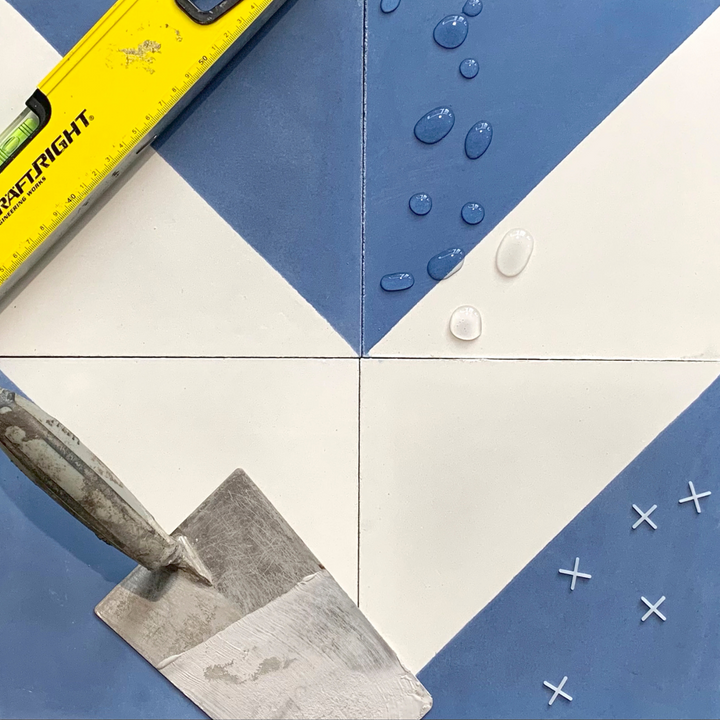How To Seal Tiles: Help & Advice
By Zoe Crook
Jul 7, 2022
The Know How Guide to Sealing Tiles
Sealing tiles gives you the confidence that your floor will look as good as new for years to come. It might seem like a simple job but as with any project, there is a lot to consider. It’s likely you or your installer have been wondering, “Do my tiles need sealing?” “When do I need to apply the sealer to my tiles?” and “What type of sealing products should I use?”.
This how-to guide will demonstrate how to seal tiles by answering all these questions and provide you with a simple step-by-step guide.

What Tile Materials Need Sealing?
One of the most important things to remember when sealing tiles is the type of material you have. When shopping and installing our beautiful collections, you'll need to seal the following tile materials:
Why it's Important to Seal Tiles
Whatever their characteristics, all tiles are porous to varying degrees and will absorb liquid and this means they can be stained by spills. Sealing your tiles is important as it will make the surface oil and water repellent and increase the
If your tiles are sealed correctly, they will be much easier to clean and maintain as dirt will sit on top of the surface of the tile without being absorbed, so it can
Tiles that have not been sealed will let water into their pores, damaging the surfaces over time. You'll find many of our tiles can be installed in wet rooms such as bathrooms and kitchens, but this is only if they are sealed correctly during installation to ensure they are water-resistant.
For more installation advice read our installation guides.

What Sealer Do I Need?
We offer sealing bundles that include an oil and water-repellant sealant, pre-grouting protector and degreaser which we recommend using alongside our guides to install most of our collection. This way you can enjoy the look knowing that your tile is protected. Please note, our tiles are porous and will take in more sealant than other products.
Shop our Sealing Bundle - 5 SQM or Less
Shop our Sealing Bundle – 10 SQM or Less
Depending on the material and because certain tiles have a higher absorbency rate than others, the amount needed will vary based on the type of surface being sealed as well as the size of the surface.
When Do I Need to Apply Sealer to My Tiles?
We recommend sealing your tiles after installation and grouting. Not only can a sealant protect the surface area of your tile but also your grout lines – it will ensure no water soaks through and cause cracks in the grout.
How to Seal Floor & Wall Tiles
Follow our simple steps below:
Ensure all grout/surfaces are clean and dry. Any grease or pre-grout residue remaining on the surface will affect the performance of the sealer.
Apply an even layer of your sealant, using a paintbrush or fleece pad, also soaking the grout lines well.
We would recommend two coats with a 20-minute interval. After the first coat allow the product to absorb into the tile and any excess sealant must be absorbed off the surface using a clean cloth to avoid any mottling on the surface, before continuing with a second coat.
For shower rooms or high traffic areas, you may need a third coat of sealant.
For most tiles, the tiles can be walked on after 4 hours and fully cured in 24 hours.
An easy test to see if the floor is fully dry after sealing is to place a few drops of water on the tiles, if it forms a bead then it has worked, if the tiles absorb the water then the sealing process needs to be repeated.
Always ensure you read the individual installation instructions for your tile material, following the online guides.

When Will Tiles Need Re-Sealing?
It is difficult to give a definite answer, as it all depends on where your tiles are laid. In high-traffic areas, your sealant is likely to wear down faster. And wet rooms with high humidity can also wear down your tile seal. If you notice tiles are staining easier or absorbing water when you clean them, it might be time to re-seal your tiles.




